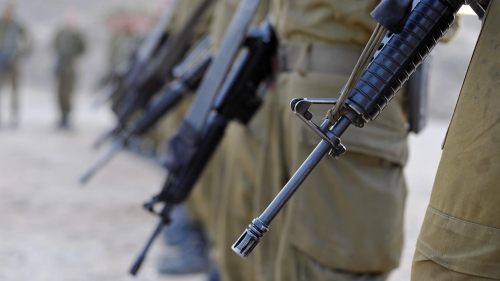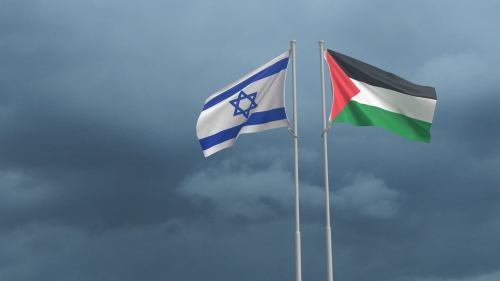Protecting Jerusalem: Turning Words to Action
Those who remained cynical during the Camp David II summit, saw the talks as a trap, aimed at demanding more concessions from Palestinian Authority President Yasser Arafat. And it was U.S. President Bill Clinton who proved them to be right as he failed to remain an honest peace broker during the summit, bashing Arafat for not being as "courageous" as Israeli Prime Minister Ehud Barak.
Most Arab and Muslim newspapers that are presumably concerned with Middle East politics, made sure to remind Arafat and his team that Jerusalem is a cause for all Arabs and Muslims, and that he had no right to compromise its sovereignty. Muslim scholars voiced their concern over the future of the city as well, and many Arab and Muslim governments shared theirn views. Even non-governmental parties conveyed similar messages, expressing their worry regarding the possibility of a compromise on Jerusalem.
And as the negotiations went on, the Qatar-based Al Jazeera satellite television brought reports of large groups of Jewish community members gathered outside the talks, vocalizing their support or opposition to the summit. Meanwhile, only a very small number of Muslims held demonstrations.
Considering the fact that there are nearly 300,000 Muslims in the Washington area alone, one must wonder why there was such a small Muslim presence. If it was the loss of faith in the process, why haven't American Muslims made that clear to the world's media? And if it's apathy, how can any Muslim turn a blind eye, while the future of one of Islam's most holiest sites is being negotiated?
Arab and Muslim governments have in fact been using the same pattern of "too much talk and too little action", years before the so-called peace process became a reality. It is true that pictures of Jerusalem, the Old City and the Aqsa Mosque deck the walls of many Arab and Muslim official offices. Yet financial support to prolong the Palestinian peoples' resistance to the unfair policies of the Israeli government barely reflects any sense of attachment.
On the other hand, a very vital point is missing in the midst of this verbal battle over Jerusalem; that the holiness of the city that can hardly be separated from the land of Palestine as a whole and the integrity of its people. If the spiritual value of Jerusalem is bound to its religious sites, then having Palestinian administrative control over these sites would solve the problem. The city of Jerusalem however, secures its value from a much broader perspective, and that is being a part of a larger, secure and stately Palestine. Arabs and Muslims must therefore, actively reject the action of relinquishing the rights of Palestinians throughout Palestine, as well as Jerusalem.
Rejecting any unworthy compromises nonetheless, whether over Jerusalem alone or any other Palestinian territory requires much more than verbal warnings.
The American and Israeli efforts to bend the Palestinians' arm has never ceased, even after the presumed collapse of the Camp David talks. In fact, the real pressure accelerated to its highest level just hours after the departure of the Palestinian negotiation team. Bill Clinton himself revealed his true stand on the issue when he revealed in an Israeli radio interview, his intentions of moving the American embassy to Jerusalem by the end of the year.
The systematic hammering of Palestinians on all levels until they would finally give up the last remnants of Palestine must be met with equal efforts on the part of Arabs and Muslims to support Palestinians. One of America's threats, conveyed by Hillary Clinton herself, was to cut off any American aid to the Palestinian Authority if they went ahead with declaring statehood in September. While Palestinian reliance on American aid is minimal, their reliance on the Israeli economy is enormous. The reasons behind such dependence are plenty, but the fact of the matter is that an Israeli decision to seal the borders (not only it's borders with the West Bank and Gaza but borders with Egypt and Jordan as well) would result in nearly complete suffocation of the already weak Palestinian economy.
The failure of the Camp David talks doesn't mean that Palestinians can rest easy. America's pressure to overcome the defiance and tenacity which was upheld by the Palestinian negotiation team in Camp David is mounting. Therefore, Arabs, Muslims and in fact, all of those concerned with justice and the implementation of international law must stand firmly and vigorously to combat Israel's coercion and America's pressure. If Palestine is truly the cause of all Arabs and Muslims, then it is time for all Arabs and Muslims to join the struggle.
Ramzy Baroud is a freelance journalist living in Seattle, Washington.
Topics: Bill Clinton, Ehud Barak, Foreign Policy, Occupation, Palestine
Views: 935
Related Suggestions

















